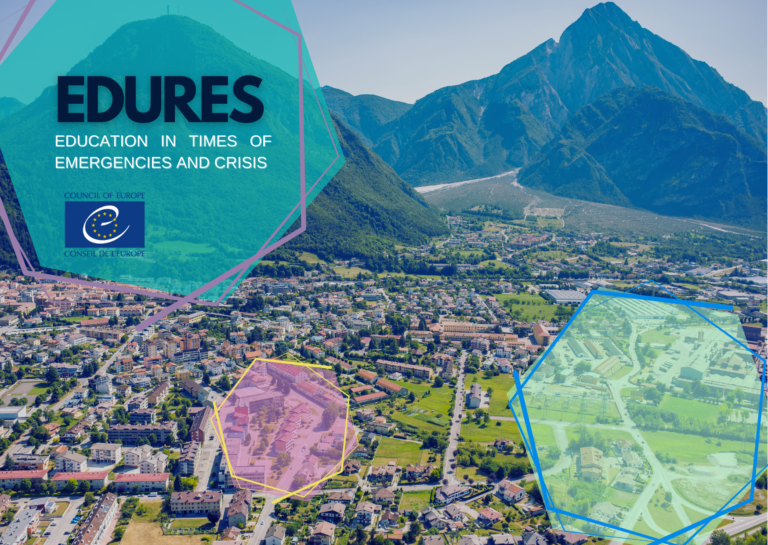15/02/2024 – Friuli Venezia Giulia (Italy)
A launch of regional piloting of the Council of Europe’s toolkit on Education at times of emergencies and crisis started in Friuli-Venezia-Giulia with an unprecedented online gathering held on 15 February 2024, regional authorities from Friuli Venezia Giulia engaged with educational leaders from Cividale del Friuli and Tolmezzo, marking a significant step towards bolstering resilience and preparedness in educational settings. This pioneering meeting, facilitated under the auspices of the Council of Europe, showcased the region’s dedication to implementing the EDURES toolkit and aligning with global educational crisis management strategies.
A Groundbreaking Initiative
The virtual assembly served as a platform for Ms. Patrizia Pavatti, Director of the Education, Guidance and Right to Study Service, Central Directorate for Work, Training, Education and Family of the Friuli Venezia Giulia Region and Dr. Daniele Del Bianco, Director of the Institute of International Sociology of Gorizia (ISIG) to disseminate findings and insights from a recent meeting in Paris with the Council of Europe. It was an opportune moment to elucidate the values embedded in the EDURES toolkit, alongside charting the course for upcoming phases of this collaborative venture.
The response from the school masters was overwhelmingly positive, with a unanimous recognition of the paramount importance of resilience and preparedness within the education system. Despite the plethora of responsibilities already burdening schools, the consensus underscored a common oversight of such critical issues. The assembly’s outcome was a collective affirmation, with all school masters pledging to join the partnership, thereby officially integrating into the project’s framework.
A Vision Shared by the Council of Europe
The Council of Europe’s preparation of the meeting highlighted several focal points, including the identification of legislative gaps in education amidst crises, the delineation of stakeholders pivotal to educational crisis response, and innovative strategies for sustaining education during tumultuous times.
Pilot Programs: A Crucial Step Forward
The discussion on pilot programs underscored the diversity in geographical, administrative, and governmental dimensions, emphasizing the necessity of these initiatives in refining the EDURES approach. These pilots are instrumental in adapting the toolkit’s application to varied contexts, thereby enhancing its effectiveness and relevance.
Schools: Beyond Shelters to Resilient Entities
The discourse also ventured into the evolving role of schools, not merely as sanctuaries during crises but as proactive entities whose resilience is imperative. This paradigm shift highlights the need for schools to be integral participants in crisis management, thereby ensuring the continuity and stability of education.
Insights from the Region
The insights shared by the Regional representatives shed light on the critical aspects of crisis management, emphasizing the indispensable role of civil protection within the region. The discussions encompassed a comprehensive approach to crisis management, from immediate responses to long-term strategies, adherence to UNESCO’s guidelines, and the importance of resilience in the educational sector.
Conclusion
The first online meeting between regional authorities and school masters in the Friuli Venezia Giulia region marks a significant milestone in the collective effort to enhance resilience and preparedness in education. By embracing the EDURES toolkit and fostering a collaborative partnership, the region sets a precedent in educational crisis management, aligning with global standards and responding proactively to the challenges of today and tomorrow.
Source: Council of Europe

